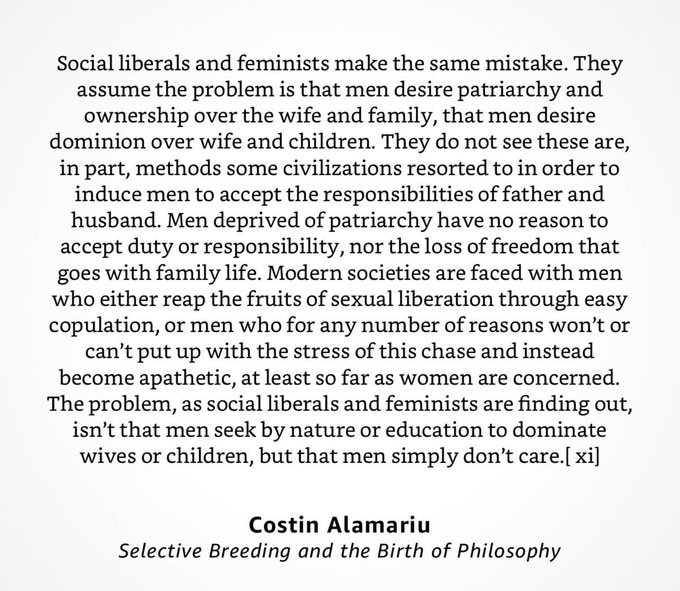You know you’re in the grips of ideology when clear evidence against it is interpreted as clear proof of it. - Žižek
How feminism treats porn and the fertility industry today is a prime example of this. The narrative is that the rise of bachelor men lost in porn, the explosion of sperm banks, and the booming fertility industry—all of it—is just more proof of patriarchy’s enduring power. But the contradictions are glaring, for anyone not enthralled by the Patriarchy Fantasy.
Patriarchy was about binding men to women—securing sex, reproduction, and social order through marriage and family. It required male investment in women as wives and mothers, creating this pair-bond as the foundation of society. Men gained power through women—by securing heirs, social status, and legacy. Porn is about getting off. That’s it. No bonds. No investment. No future. Just pixels, orgasm, and exit.
Porn doesn’t reinforce male power—it rewards male solitude and alienation. It thrives on bachelorhood, parasocial fantasies, AI girlfriends, cam girls—anything but marriage, family, or reproductive responsibility.
Patriarchy relied on the symbolic Father—the figure of Law, restraint, order. Porn is pure superegoic enjoyment. No law, no limit, no Father—just endless demands to enjoy. The Father said No. Porn says Enjoy!
If this is patriarchy, why are more men opting out of the marriage market entirely? Why is the dominant female complaint today not about being trapped or controlled, but about the lack of husband or father material?
Sperm banks don’t scream “patriarchy”! They flag male exit from reproduction.
This sector of the fertility industry exists because of less men willing—or needed—to play the paternal role. The sperm is alienated, commodified, and sold on the market.
Patriarchy—whatever its faults—was reproductive. Porn is anti-reproductive. Patriarchy was fundamentally about managing reproduction—raising families, controlling paternity, securing legacy. Porn is sterile. It routes sexual desire away from real women, away from pregnancy, away from forming families.
Patriarchal power was concrete: control over specific women in specific households. It was local, personal, material—this man marries this woman and produces these children. Porn is abstract. Men consume women they’ll never meet—streamed from anywhere, owned by no one but the market. Libido is globalized, flattened, commodified. No control. No paternity. No legacy. Just endless consumption.
Thesis: What the porn and fertility industries reveal isn’t the persistence of patriarchy. It’s the death of it. This isn’t a story of reconstituted male power. It’s the collapse of the entire sexual contract.






